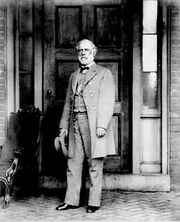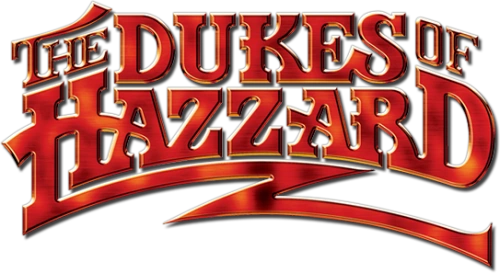- You may be looking for the 1969 Dodge Charger, General Lee.
Robert Edward Lee (January 19, 1807 – October 12, 1870) was a career United States Army officer and combat engineer. He became the commanding general of the Confederate army in the American Civil War and a postwar icon of the South's "lost cause". A top graduate of West Point, Lee distinguished himself as an exceptional soldier in the U.S. Army for 32 years. He is best known for having commanded the Confederate Army of Northern Virginia in the American Civil War.
History[]

Confederate General Robert E. Lee poses in a late April 1865 portrait taken by Mathew Brady in Richmond, Virginia.
In early 1861, President Abraham Lincoln invited Lee to take command of the entire Union Army. Lee declined because his home state of Virginia was, despite his wishes, seceding from the Union. When Virginia declared its secession from the Union in April 1861, Lee chose to follow his home state.[1] Lee's eventual role in the newly established Confederacy was to serve as a senior military adviser to President Jefferson Davis. Lee soon emerged as the shrewdest battlefield tactician of the war, after he assumed command of the Confederate eastern army (soon christened "The Army of Northern Virginia") after the wounding of Joseph Johnston at the Battle of Seven Pines. His abilities as a tactician have been praised by many military historians.[2][3] They were made evident in his many victories such as the Battle of Fredericksburg (1862), Battle of Chancellorsville (1863), Battle of the Wilderness (1864) Battle of Cold Harbor (1864), Seven Days Battles, and the Second Battle of Bull Run. His strategic vision was more doubtful—his invasions of the North in 1862 and 1863 were designed to help gain foreign recognition, seize supplies, take the pressure off his beloved Virginia, and mobilize antiwar elements in the North.[4] After a defeat at Antietam (1862) and disaster at Gettysburg (1863), hopes for victory were dashed and defeat for the South was almost certain. However, due to ineffectual pursuit by the commander of Union forces, Lee after both defeats escaped back to Virginia. His decision in 1863 to overrule his generals and invade the North, rather than help protect Vicksburg, proved a major strategic blunder and cost the Confederacy control of its western regions, according to critical historians, such as Sears and Eicher.[5][6][7] Nevertheless there is no dispute that Lee's brilliant defensive maneuvers stopped the Union offenses one after another, as he defeated a series of Union commanders in Virginia.
In the spring of 1864, the new Union commander, Ulysses S. Grant, began a series of campaigns to wear down Lee's army. In the Overland Campaign of 1864 and the Siege of Petersburg in 1864–1865, Lee inflicted heavy casualties on Grant's larger army, but was forced back into trenches; the Confederacy was unable to replace his losses or even provide adequate rations to the soldiers that did not desert. In the final months of the Civil War, as manpower drained away, Lee adopted a plan to arm slaves to fight on behalf of the Confederacy, but the decision came too late and the black soldiers were never used in combat. In early April 1865, Lee's depleted forces were overwhelmed at Petersburg; he abandoned Richmond and retreated west as Union forces encircled his army. Lee surrendered to Grant at Appomattox Courthouse on April 9, 1865, marking the end of Confederate hopes; the remaining armies soon capitulated. Lee rejected the folly of starting a guerrilla campaign against the Yankees and called for reconciliation between the North and the South.
After the war, as a college President, Lee supported President Andrew Johnson's program of Reconstruction and inter-sectional friendship, while opposing the Radical Republican proposals to give freed slaves the vote and take the vote away from ex-Confederates. He urged them to re-think their position between the North and the South, and the reintegration of former Confederates into the nation's political life. Lee became the great Southern hero of the war, and his popularity grew in the North as well after his death in 1870. He remains an iconic figure[8] of American military leadership.
References[]
- ↑ Elizabeth Brown Pryor "Robert E. Lee's "Severest Struggle,"" American Heritage, Winter 2008.
- ↑ Josiah Bunting, Ulysses S. Grant (2004) p. 62
- ↑ Jay Luvaas, "Lee and the Operational Art: The Right Place, the Right Time," Parameters: US Army War College, Sept 1992, Vol. 22#3 pp 2-18
- ↑ McPherson, Battle Cry pp 538 and 650
- ↑ Stephen W. Sears, "'We Should Assume the Aggressive': Origins of the Gettysburg Campaign," North and South: The Official Magazine of the Civil War Society, March 2002, Vol. 5#4 pp 58–66
- ↑ David J Eicher, The Longest Night: A Military History of the Civil War (2001) p 462
- ↑ It was too late to help Vicksburg, counters Albert Castel, "The Historian and the General: Thomas L. Connelly versus Robert E. Lee," Civil War History (March 1970).
- ↑ John F. Ross "Unlocking History: Treasures of Robert E. Lee Discovered," American Heritage, Winter 2008.
